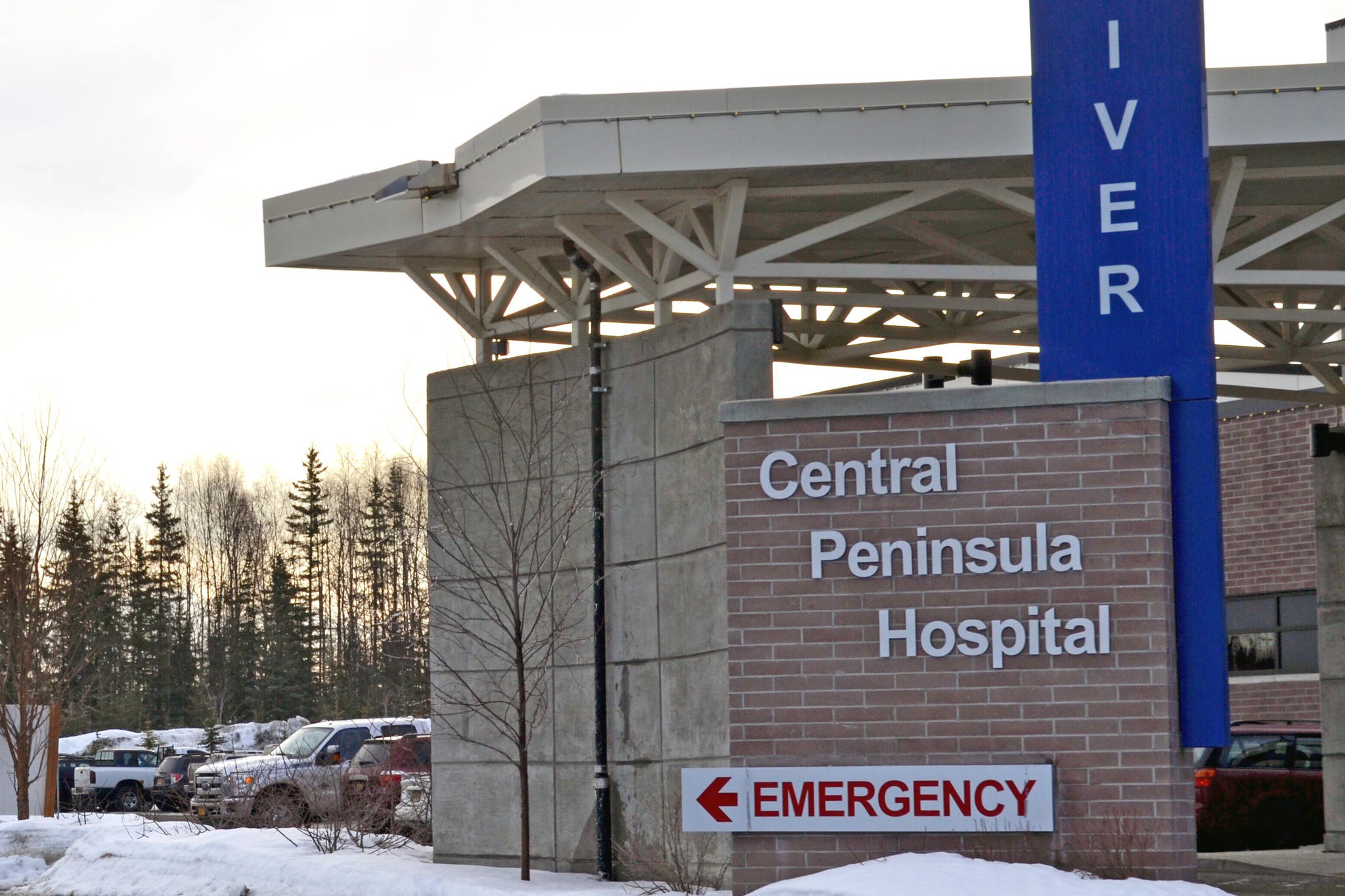The U.S. Food and Drug Administration recently issued an emergency use authorization for two new COVID-19 treatments, and the State of Alaska has distributed these treatments to facilities across the state, including the Kenai Peninsula. These treatments are not universally available, however, and they are only available under specific circumstances.
Dr. Eric Troxell, clinical pharmacist with Alaska’s Department of Health and Social Services, said in an email Wednesday that Alaska has been allocated approximately 120 doses of these treatments per week, with allocations occurring on a weekly basis for the past month and calculated based on the state’s number of cases and hospitalizations. The treatments will likely become more widely available if they are given full FDA authorization, Troxell said.
Central Peninsula Hospital in Soldotna and South Peninsula Hospital in Homer have already received an allocation of these treatments and have begun infusing patients, according to Troxell and information officers with the two hospitals.
Public information officer Bruce Richards told the Clarion Wednesday that CPH received 50 doses of one of the treatments — bamlanivimab manufactured by Eli Lilly — within the last month, and 10 doses of the dual antibodies casirivimab/imdevimab manufactured by Regeneron are on the way.
Derotha Ferraro, public information officer with SPH, said in an email Wednesday that Homer’s hospital has more than 30 doses of bamlanivimab and five doses of casirivimab/imdevimab.
Both treatments are targeted toward specific people who have tested positive for COVID within the last 10 days, are at least 12 years old, weigh at least 40 kilograms (about 88 pounds) and are considered “high risk” for severe COVID-19 infection and/or hospitalization. Infusions of these treatments in eligible patients have been shown to result in less severe outcomes from the disease.
“Basically they keep you out of the hospital,” Richards said Wednesday.
People who meet at least one of the following criteria are considered high risk for the purposes of receiving these treatments:
- People with a body mass index greater than 35
- People with chronic kidney disease
- People who are diabetic
- People who have an immunosuppressive disease
- People who are currently receiving immunosuppressive treatments
- People over the age of 65
- People over the age of 55 with cardiovascular disease, hypertension, chronic obstructive pulmonary disease or other chronic respiratory diseases
- People between 12 and 17 whose BMI is in the 85th percentile of their age and gender, or people in that age group who have sickle cell disease, congenital or acquired heart disease, neurodevelopmental disorders, medical-related technological dependence not related to COVID-19, asthma or other chronic respiratory diseases that require daily medication for control.
These therapies are available only on a limited basis, and those who have tested positive and may be eligible should contact their health care provider to discuss their options. At CPH, the infusions are given in the emergency department and patients must be referred by their health care provider before receiving treatment. Treatment is also only available during daytime hours, Richards said.
Both treatments use monoclonal antibodies — which are human-made antibodies that mimic the immune system’s response to infection — that stick to the spike protein on the virus and block it from entering human cells.
While the benefits have been shown to outweigh the adverse effects when treating certain patients in the early stages of the virus, the treatments are not effective in all cases, and use of monoclonal antibodies such as these “may be associated with worse clinical outcomes when administered to hospitalized patients requiring high flow oxygen or mechanical ventilation with COVID-19,” as stated on the websites of both Eli Lilly and Regeneron.
The observed side effects of bamlanivimab during clinical trials, according to Eli Lilly, include nausea, diarrhea, dizziness, headache, pruritus (itching) and vomiting.
There is a potential for hypersensitivity reactions, including anaphylaxis, with the infusion of casirivimab and imdevimab, according to Regeneron. Other observed side effects during clinical trials were pneumonia, hyperglycemia, nausea and vomiting.
Richards said the infusion process takes about two hours, and patients should be observed for at least an hour after infusion, according to guidance from the FDA.
In addition to distributing the treatments to facilities across the state, DHSS has set up a state-run infusion center in Anchorage that is located inside the Alaska Airlines Center but is separate from the alternate care site that has been established there.
“DHSS has been able to stand this infusion center up within a very tight time frame to be able to offer these treatments as quickly as possible to Alaskans who are positive and at highest risk for hospitalization,” Gov. Mike Dunleavy said in a Wednesday press release from DHSS. “Between these new treatments and vaccines coming soon to Alaska, there is great hope on the horizon. The end of this pandemic is in sight, but we still need to remain vigilant to continue to protect Alaskans and save lives.”
The outpatient infusion center in Anchorage began treating patients Wednesday and is staffed by Fairweather LLC, which has contracted with DHSS. The center will treat 15 patients per day on Mondays, Wednesdays and Fridays, according to the DHSS press release. The number of operating days and patients treated is expected to increase based on drug availability and patient need.
There is no cost for the antibodies, Troxell said, because the federal government purchased the initial doses. Troxell said there could be costs for the patient associated with the actual infusion process, however, and Richards and Ferraro confirmed that anyone receiving these treatments at CPH should expect a bill equivalent to the cost of a standard visit to the emergency department.
Reach reporter Brian Mazurek at bmazurek@peninsulaclarion.com.

